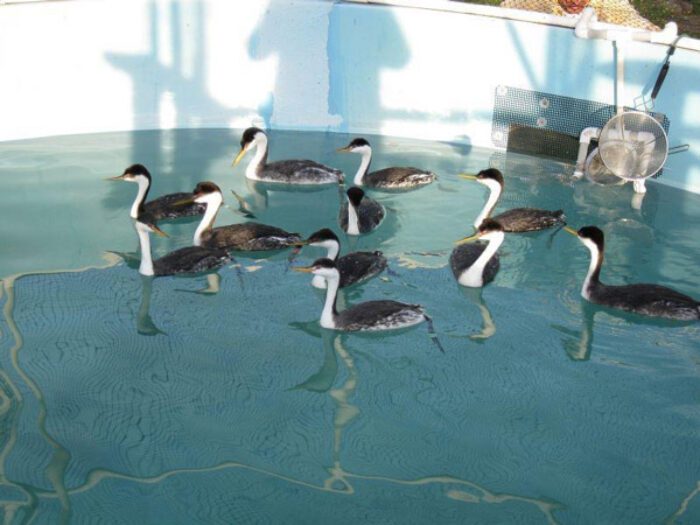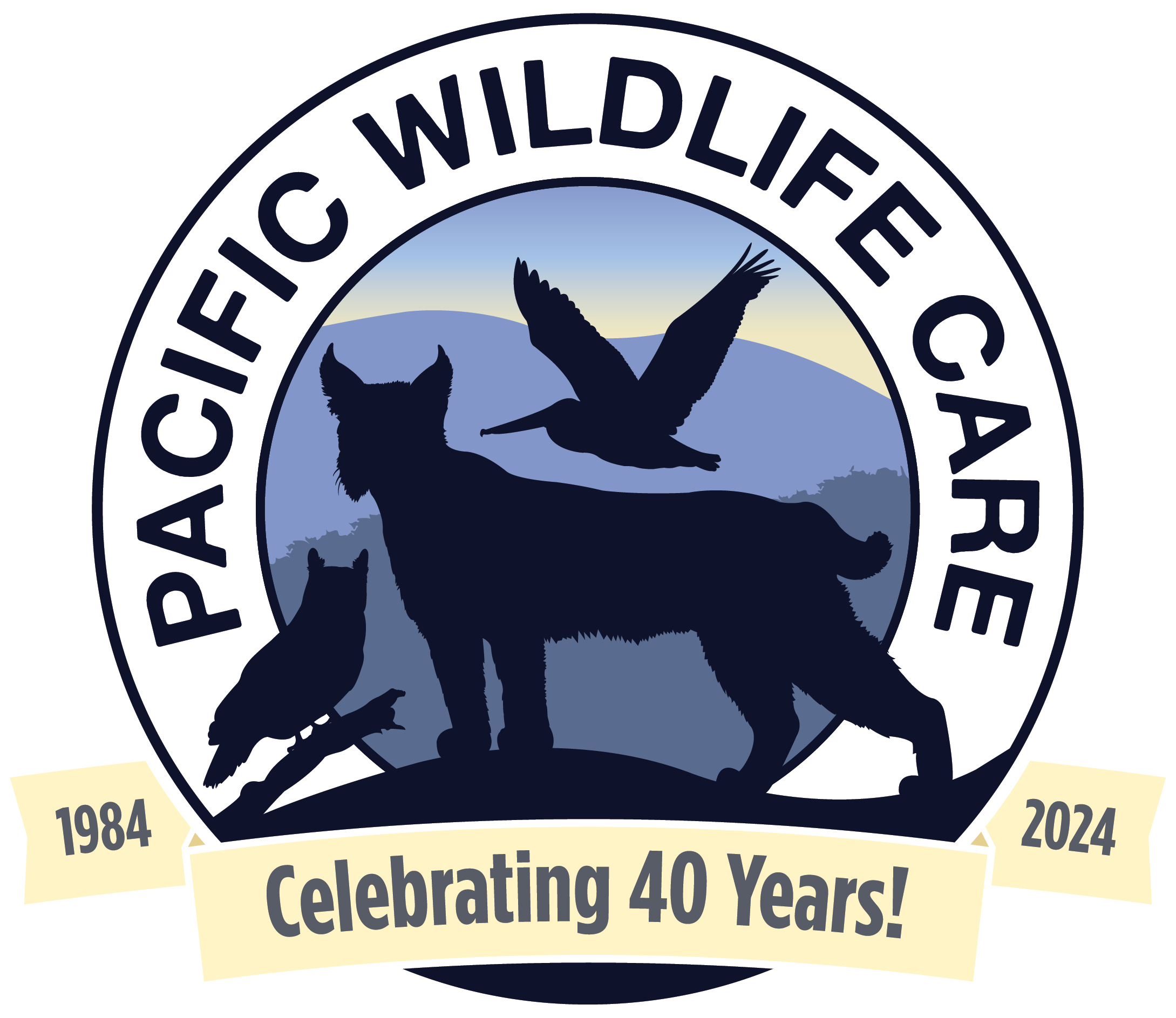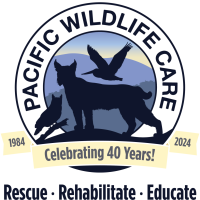Birds
How (and when) to help an injured or orphaned bird
If your need help determining whether or not a wild bird needs help, you can contact PWC at 805-543-9453 (WILD) to help decide the best course of action.
- If the bird is uninjured and has some feathers, put it in the nearest tree. The parents have no sense of smell and will not know it’s been touched. If it can’t perch and has fallen out of the nest, put it up in the tree in a berry basket or shoebox lined in shredded tissue. Parents WILL feed it after people leave.
- If the bird runs around, is chick-like (covered with short fuzzy down), it may be a baby quail or killdeer. These birds nest on the ground, and the parents fly off when people come near. Leave the immediate area and watch to see if a parent will come back (you may have to wait up to an hour.)
- The bird needs help and should be picked up if: the parents are dead; the bird is newly hatched and the nest and nest mates are out of reach; the bird fell from a palm tree; it has an injury, a cat or a child has brought it in from places unknown.
- If the bird is injured, or has no feathers, it is most important to get it warm. Use a heating pad on low or a light source (low wattage.) Fractures need to be set within 48 hours or they heal incorrectly and get infected.
- Raising an orphaned songbird takes from four to eight weeks and a lot of daytime commitment. They need feeding about every 45 minutes from 6 AM to 8 P.M. for four to six weeks. No trips to the beach wile you’re a bird mother! When they become self feeding (which may not be until six weeks old), they need to be exposed to their natural foods (grains, etc. for seed eaters, mealworms, fruit and berries for the insect and fruit eaters). After being completely self feeding for one week, they need two weeks in an outdoor aviary to fly and compete with others.
- Hummingbirds, pigeons, doves, hawks, owls, killdeer and quail need special formulas or feeding techniques. Try and get these birds to us as soon as possible.
Note: hummingbird babies fed sugar water of “hummingbird nectar” and hawks/owls fed hamburger, etc. for more than 24 hours may develop crippling deformities.
Read more on rescuing ill, injured, or orphaned songbirds.
Guidelines for temporary care of birds. (PDF)


